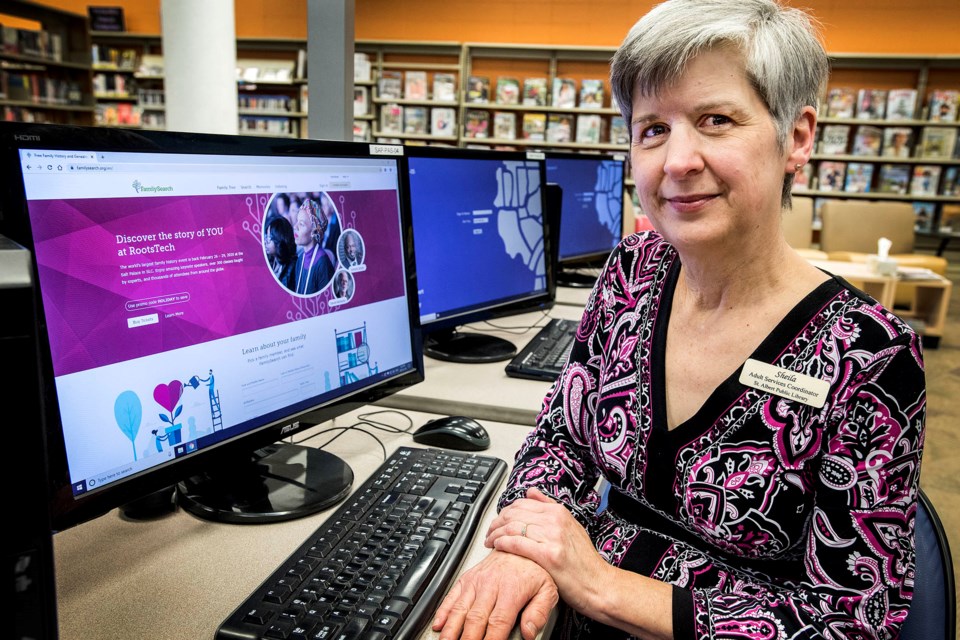Genealogy is a growing pastime that has both educational and entertainment value. Getting to play detective while expanding the branches on your family tree can be very satisfying on many levels.
But how to get started? That’s where the St. Albert Public Library comes in. As a new FamilySearch affiliate, the library has become a major resource centre for those looking to track down their roots.
“FamilySearch is a site that's created by the Church of Latter Day Saints, who for decades and decades been collecting genealogy resource material,” began volunteer genealogical assistant John Wemhof. “They've been nonconforming church records; they've been collecting census records when they become available. It's a free site so that's where I start people out and then Ancestry – the library edition – is free when you're in the building here.”
Ancestry is another web-based research tool that otherwise requires a person to register with a paid subscription for the service.
The library hosts a drop-in Genealogy Club that meets on the first Monday of every month in the second floor training room and is open to everyone. There are usually short presentations to start off each meeting before attendees get to explore resources and share information with others. The next meeting takes place from 6:30 to 8:30 p.m. on Monday, Jan. 6. Pre-registration is not required but a degree of patience is.
“Quite often we'll get newbies coming into the drop-in that just want to get started on something. Because the library has such great access to Ancestry and FamilySearch, now we can get them started and they can go home and carry on or come back and do it on their own time here,” Wemhof continued.
If you are more eager than that and can’t wait till the drop-in meeting, there is a session for introducing people to FamilySearch that will take place on Sunday, Jan. 5, at 1:30 p.m. Organizers do request people sign up for a spot beforehand, but once they get there, they will be treated to a demonstration of the site plus assistance with your own personal search. Attendees should come prepared to search by bringing their ancestors’ names along with their known or approximate birth and death dates and locations they lived in. They should also bring an email address or cellphone for use in creating their free FamilySearch account, too.
In his own personal genealogical research, Wemhof has had to travel to an old church in Germany in order to find information that just wasn’t available anywhere else. For most everyone else, however, he said that the best tool is accessible at the library and is also already in most people’s homes.
“The Internet is for genealogy. It is a huge resource. It's a huge moneymaker. There are incredible resources that are free.”
While most genealogical sites would otherwise charge their own fees, the library pays so that members can do their own research at no cost. This is great, he added, because most people don’t even know what kind of information they can learn when they first start the process. To pay hundreds of dollars only to come back empty-handed is just not ideal for the majority of people.
The bonus about using the library’s FamilySearch membership is that it also allows you access to more digitized records including images and books.
“They had some resources that were only available to people to see if they went to one of their family history centres. Some of the things were not freely available to everybody to see just on the web,” added Michelle Steinhusen, adult programming librarian.
Wemhof added that national and provincial archives are also great – and free – resources for those on their own genealogical quests.




